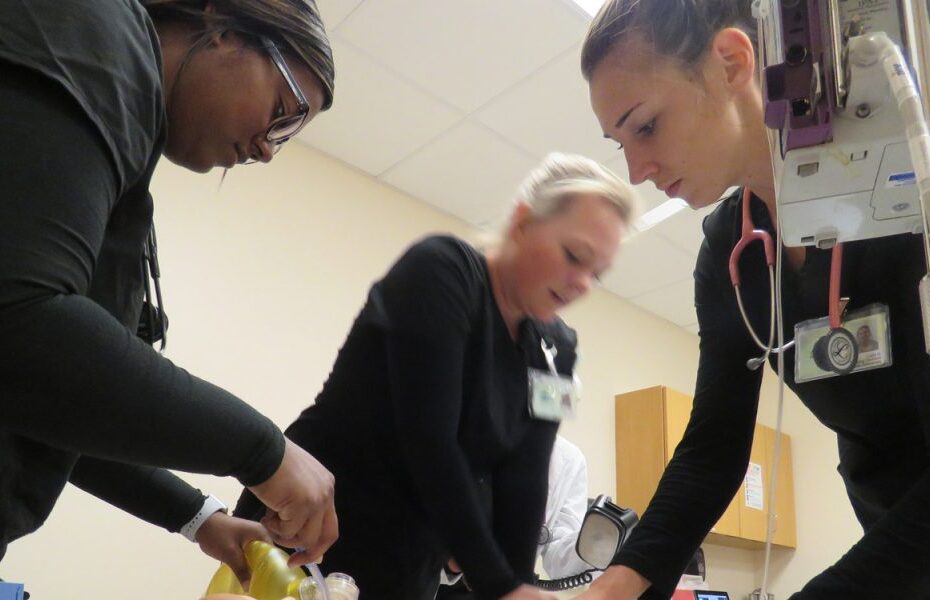In the dynamic and ever-evolving world of healthcare, nursing associations serve as essential pillars of support, education, and professional development for nurses. These organizations offer a wide array of benefits, from networking opportunities to access to the latest research and educational resources. But with numerous nursing associations available, how do you find the right one that aligns with your goals and aspirations? This guide will walk you through the process of discovering the ideal nursing association tailored to your needs.
The Significance of Nursing Associations
Nursing associations play a pivotal role in shaping the nursing profession. They provide a platform for nurses to come together, share their experiences, and work collectively towards common goals. These associations serve as advocates for nurses, championing their rights and advancing the nursing profession as a whole.
Identifying Your Goals and Interests
Before delving into the world of nursing associations, take a moment to reflect on your career goals and interests. Are you passionate about a specific nursing specialty, such as pediatrics, critical care, or oncology? Do you have a strong desire to engage in advocacy or research? Understanding your aspirations will guide you towards the most suitable nursing association.
Types of Nursing Associations
Nursing associations come in various forms, each catering to different aspects of the nursing profession. Here are some common types:
Specialty Nursing Associations
These focus on specific nursing specialties. For instance, the American Association of Critical-Care Nurses (AACN) is dedicated to critical care nursing, while the American Pediatric Nurses Association (APNA) serves the pediatric nursing community.
State or Regional Nursing Associations
These associations operate on a more localized level and offer opportunities for networking and collaboration within a particular region.
General Nursing Associations
Organizations like the American Nurses Association (ANA) are broader in scope, representing the interests of nurses across various specialties and roles.
Research and Exploration
Once you’ve pinpointed your career goals and the type of nursing association that aligns with them, it’s time to do some research. Explore the various nursing associations that match your criteria and take note of their missions, values, and offerings.
Website and Online Presence
Most nursing associations have websites that provide comprehensive information about their activities, membership benefits, and events. Browse through their online presence to get a feel for their culture and commitment to the nursing profession.
Membership Benefits
Compare the membership benefits offered by different associations. These benefits can range from access to cutting-edge research, educational resources, and networking opportunities to discounts on conferences and events.

Advocacy and Initiatives
Consider the advocacy work and initiatives that the association is involved in. Do they align with your values and goals? If you are passionate about a particular cause, such as patient advocacy or nurse empowerment, seek associations that share your vision.
Attend Events and Engage
One of the most effective ways to determine if an association is the right fit for you is by attending their events or meetings. Many associations host conferences, webinars, and networking events. Participating in these activities allows you to interact with members, learn about the association’s culture, and gain a deeper understanding of their mission.
Seek Recommendations
Reach out to your colleagues, mentors, and fellow nurses for recommendations. They may have insights into which nursing associations have been particularly beneficial for their careers.
Making Your Decision
After thorough research and engagement, you should have a clearer perspective on which nursing association resonates most with your aspirations. Consider the following factors in making your decision:
- Alignment with Your Goals: Does the association’s mission align with your career objectives?
- Networking Opportunities: Will membership offer you valuable connections within your desired nursing community?
- Educational Resources: Are there resources and opportunities for continuous learning and professional development?
- Advocacy and Impact: Does the association work on issues that you are passionate about?
- Financial Considerations: Evaluate membership fees and benefits to ensure they are in line with your budget.
Nursing associations are not one-size-fits-all. Each nurse’s journey is unique, and the right association can be a valuable companion along the way. As you explore the world of nursing associations, keep your goals and interests at the forefront, and trust in the association that resonates most with your vision for a fulfilling and impactful nursing career.
Nurturing Your Nursing Journey
When you’ve identified the nursing association that aligns with your aspirations and values, becoming a member is the next step in nurturing your nursing journey. Here’s how to make the most of your association membership:
Actively Participate
Being a passive member of a nursing association won’t provide you with the full range of benefits. Actively participate in events, discussions, and initiatives. Engage in committees, attend conferences, and connect with fellow members. These interactions can lead to new opportunities, friendships, and invaluable knowledge.
Access to Educational Resources
Most nursing associations offer a wealth of educational resources, from webinars and workshops to research publications and journals. Take advantage of these resources to stay updated with the latest advancements in nursing and enhance your professional skills.
Advocacy and Leadership
If you’re passionate about advocating for the nursing profession or initiating positive change, consider taking an active role within the association. Many associations offer leadership opportunities, allowing you to influence policies and advocate for the causes you believe in.
Networking and Mentorship
Building a strong professional network is an invaluable asset in your nursing career. Nursing associations provide a platform to connect with experienced nurses who can serve as mentors. These mentors can offer guidance, share their experiences, and help you navigate the complexities of the profession.
Lifelong Learning
Nursing is a field that constantly evolves, with new treatments, technologies, and best practices emerging regularly. Nursing associations help you stay ahead of these changes by providing continuous learning opportunities. This ongoing education not only benefits your career but also improves patient care.
Career Advancement
Your nursing association can be a vital resource for career growth. It can provide access to job boards, career counseling, and guidance on certifications and specializations. Whether you’re looking to climb the career ladder or transition into a new nursing specialty, your association can be a valuable ally.
Giving Back
As you progress in your nursing career and accumulate experience and knowledge, consider giving back to your association and the nursing community. Share your expertise, mentor new members, and actively contribute to the profession’s development.
Conclusion
Nursing associations are more than just organizations; they are communities of like-minded professionals dedicated to the noble art of nursing. Finding the right one for you and actively participating can transform your nursing journey in profound ways.
Remember that your choice of association is a commitment to your personal and professional growth. It’s an investment in your career and an opportunity to make a positive impact on the nursing profession. So, embrace your journey, connect with your peers, and let your nursing association be the guiding light in your path toward excellence in healthcare.
